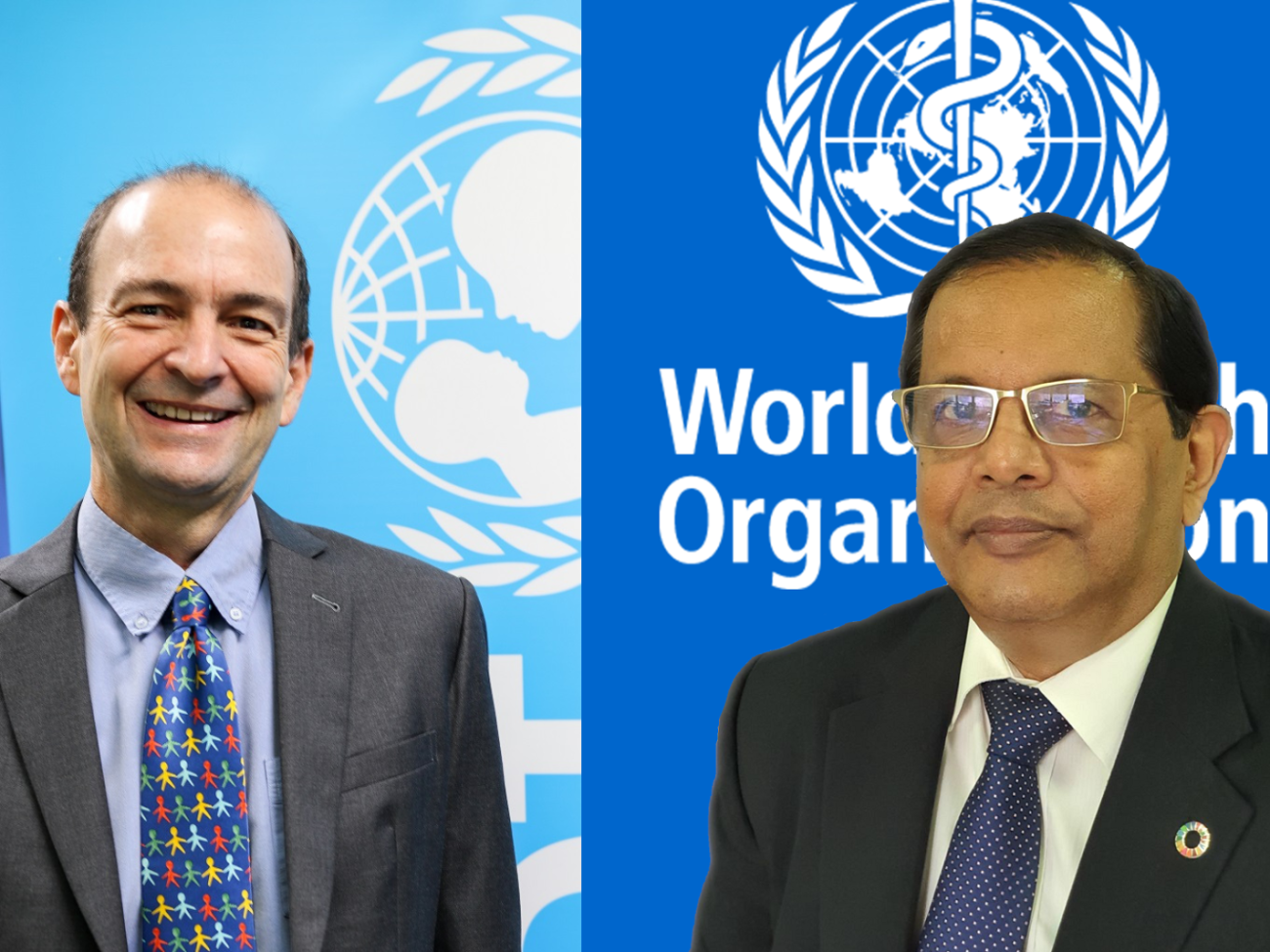Protect breastfeeding for healthier children

Respect The Code to limit industry influence on the mother’s choice to breastfeed
Exclusive breastfeeding provides the best nutrition for babies in the first six months of their lives. Today, on the first day of World Breastfeeding Week, WHO and UNICEF are partnering to promote breastfeeding practices in families and communities, and to urge stakeholders to respect the International Code of Marketing of Breastmilk Substitutes (also known as “The Code”).
“Upon childbirth, mothers produce milk that contains all the proteins, fats, carbohydrates, vitamins and minerals that the baby needs. It is this miracle of life and survival that we celebrate every year on World Breastfeeding Week. Mothers and families need to be supported for their children to be optimally, and confidently breastfed,” said Robert Gass, UNICEF Representative in Malaysia.
This year on World Breastfeeding Week, WHO and UNICEF seek to encourage stronger protection for breastfeeding mothers, who are vulnerable to harmful influences from the food industry producing breast-milk substitutes (BMS).
“Babies should be breastfed. Breast-milk substitutes should be available when needed, but not be promoted” said Dr Rabindra Abeyasinghe, WHO Representative to Malaysia, Brunei Darussalam and Singapore. “The Code, an international public health agreement, aims to protect mothers from aggressive marketing practices by the baby food industry. We commend the commitment of the Malaysian government to strengthen the implementation of The Code, and urge all stakeholders to respect its provisions, thereby creating the best environment for newborns to grow healthy.”
While all infants should be exclusively breastfed for the first 6 months of their lives, unfortunately that is often not the case. Latest available data from the National Health and Morbidity Survey (NHMS) 2016 estimates that only 47% of infants are exclusively breastfed during the first 6 months. This is significantly lower than the national target of 58%, set by the Ministry of Health.
The benefits of breastfeeding are well documented. Breastfeeding offers babies protection from infection. Children and adolescents who were breastfed as babies are less likely to be overweight or obese. They perform better on intelligence tests and have higher school attendance. Breastfeeding is associated with higher income later in life.
Low breastfeeding rates can be attributed to several factors. These include workplace and time constraints faced by working mothers; lack of knowledge and misconceptions about breastfeeding; lack of support from the families and communities. In some cases, certain medical conditions may also make it challenging for some mothers.
Mothers are also prone to being influenced by the aggressive marketing of breastmilk substitutes, often targeting them even before their children are born. Marketing of formula milk and other breastmilk substitutes can influence mothers' choices and lead to a decline in breastfeeding rates, which is why The Code has been put in place to protect breastfeeding mothers.
Restricting the marketing of breastmilk substitutes is essential to safeguard the interests of breastfeeding mothers and protect the health and future of their children.
Breastfeeding is widely recognized as the best way to nourish infants and provides numerous benefits for both the child and the mother. WHO and UNICEF recommend that babies are exclusively breastfed for the first 6 months of their lives. We also recommended that babies should continue to be breastfed up to 2 years of age or beyond.
This World Breastfeeding Week, we urge the government to strengthen the existing policies and introduce new measures that fully align with The Code. We also urge all healthcare workers to support the full implementation of The Code. Additionally, we call on the breastmilk substitute companies to publicly commit to adhere to The Code.
Notes:
International Code of Marketing of Breastmilk Substitutes
The International Code of Marketing of Breastmilk Substitutes (also known as “The Code”) was developed by the World Health Organization and endorsed by the WHO Member States in 1981, including by Malaysia. The Code aims to limit any unethical marketing approaches and reduce the influence of the industry on the mother’s choice to breastfeed.
The Code includes provisions, aimed at elimination of inappropriate and harmful marketing of breastmilk substitutes. It states that breastmilk substitutes should be available when needed, however they should not be promoted. The marketing of breastmilk substitutes may be viewed as harmless, but it may have serious long-term consequences to the health and life of the child.
While the Code states that direct and indirect promotion of breastmilk substitutes is not allowed, regular monitoring of the marketplace shows repeated examples of the Code violation in Malaysia. The violations are particularly prominent in the digital space, especially within the sphere of the social media influencers, which is more difficult to monitor for compliance with the Code.
Additionally, we have seen marketing activities such as distribution of free samples to healthcare facilities, sponsoring events, and funding research. These violations undermine breastfeeding efforts and can have adverse consequences for both mother and baby.
Mother’s breastmilk is the best baby food
Breastfeeding is widely recognized as the best way to nourish infants and provides numerous benefits for both the child and the mother:
1. Provides optimal nutrition: Breastmilk contains all the essential nutrients, vitamins, and minerals that the baby needs for healthy growth and development.
2. Protects from infection: Breastmilk contains antibodies and other compounds that strengthen the infant's immune system, providing protection against infections.
3. Reduces the risk of chronic diseases in adult life: Breastfeeding can help decrease the risk of obesity, type 2 diabetes, and certain childhood cancers later in life.
4. Improves brain development: Breastfeeding has been associated with improved cognitive development in children, improved IQ, and a higher income in adult life.
5. Promotes emotional bonding: The act of breastfeeding fosters a strong emotional bond between mother and child, promoting feelings of security and attachment.
6. Lowers the risk of breast and ovarian cancer: Prolonged breastfeeding has been associated with a reduced risk of breast and ovarian cancer in mothers.
For more information:
Rachel Choong, UNICEF Malaysia, Media Officer, +6012 293 2690, rchoong@unicef.org


